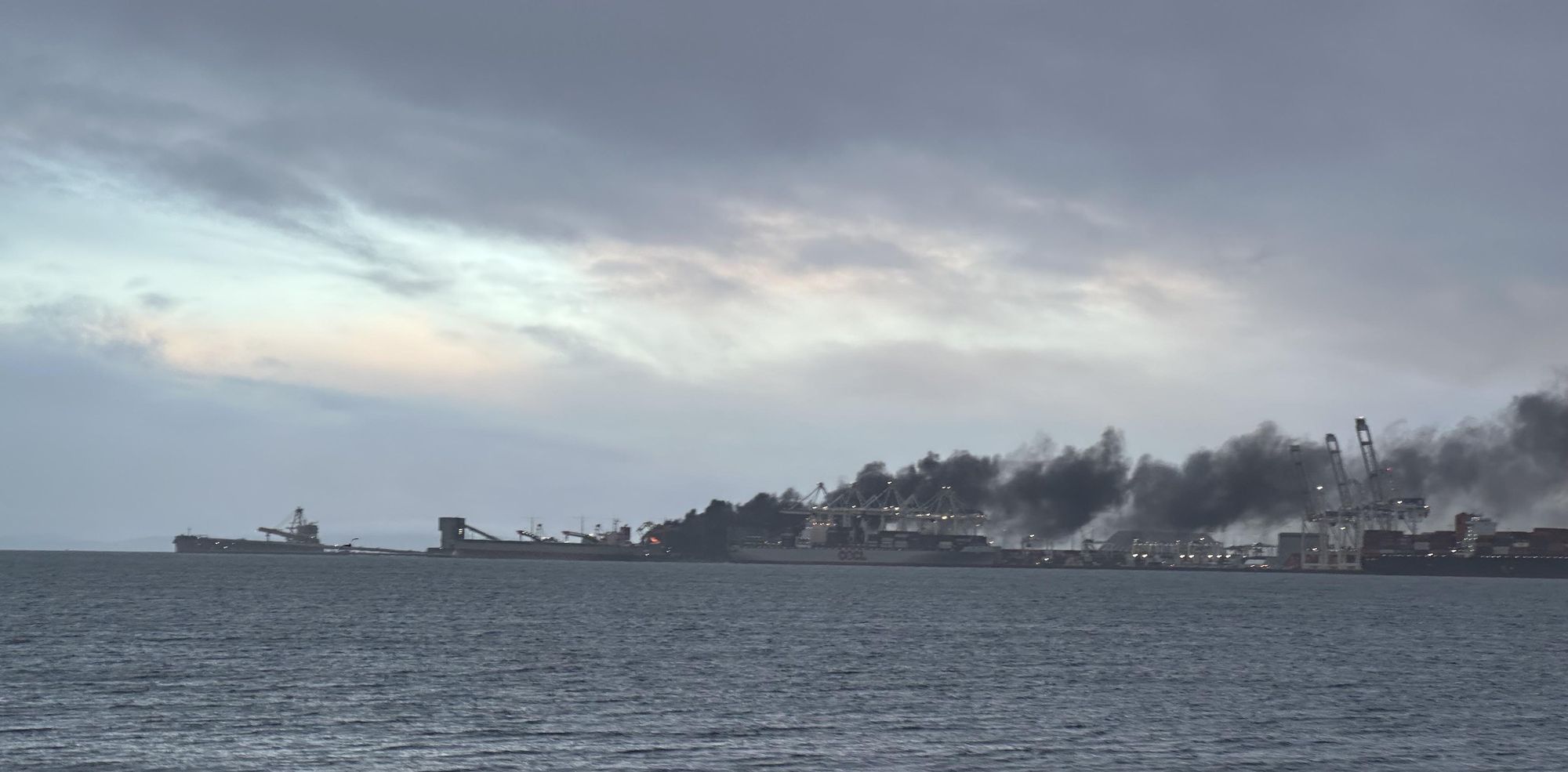A fire broke out at the Westshore Coal Export Terminal, located in Delta on Canada’s west coast, on December 28, 2024. The terminal, which is the largest coal export hub in Canada, handles an annual export of 36 million tonnes of coal. Currently, operations at the terminal have been halted, and there is no clear timeline for recovery. This may potentially affect coal transportation in the Pacific waters.
(Text by Hirofumi Yamamoto)
Photo courtesy: British Columbia
According to Canadian fire authorities, the Westshore Terminal is equipped with 94 ground-mounted sprinklers and 28 water towers, with the fire being brought under control by December 30.
The Westshore Coal Port Terminal is one of North America’s largest coal export facilities, playing a significant role in exporting Canadian coal, particularly to the Asian market. It is crucial in the transportation of goods, including coal, containers, and liquefied natural gas (LNG).
Roberts Bank, located in British Columbia, Canada, is an important freight port along the southern edge of the Vancouver area, near the Strait of Georgia. According to industry sources, the terminal is a key export point for metallurgical and thermal coal. Established in the mid-1970s, the facility is now operated by Westshore Terminals and has undergone several upgrades to improve its capacity and efficiency.
The terminal handles approximately 33 million tonnes of coal annually, with the majority being exported to international markets, particularly in Asia. As a key pillar of Canada’s economy, the terminal plays a significant role in generating export revenues and creating jobs. The suspension of operations could potentially have a negative impact on export revenues and employment.
For the dry bulk shipping market in the Pacific, there are concerns that reduced demand for Cape Size and Panamax vessels may result from the closure. Given that Roberts Bank is one of North America’s leading coal export bases, prolonged operational suspension could lead to a shift in procurement routes by shippers, potentially favouring Australian coal.
カナダ・ロバーツバンクの石炭出荷基地ウェストショア・ターミナルで火災発生
カナダの西岸デルタにあるウェストショア・コール・エクスポート・ターミナル(Westshore Coal Export Terminal)で2024年12月28日、火災が発生した。同ターミナルは、年間3600万トンの石炭を出荷するカナダ最大の石炭輸出基地である。現在、同ターミナルは操業を停止しており、今後の復旧の目途は立っておらず、太平洋水域の石炭輸送に影響が出る可能性がある。
(Text by Hirofumi Yamamoto)
Photo courtesy=British Columbia
カナダ消防当局によると、ウェストショアには、地上に設置された94基のスプリンクラーと28基の給水塔があり、30日には火災が鎮火した。
ウェストショア・コール・ポート・ターミナルは、北米最大規模の石炭輸出施設の一つであり、特にアジア市場へのカナダ産石炭輸出において重要な役割を果たしている。特に貨物輸送や石炭、コンテナ、液化天然ガス(LNG)などの輸出において重要な役割を担っている。
ロバーツバンクは、カナダのブリティッシュ・コロンビア州に位置する重要な貨物港であり、バンクーバー地域の南、ジョージア海峡沿いにある。関係者によると、同ターミナルは鉄鋼用石炭や発電用の石炭(一般炭)の輸出において重要な拠点である。この施設は1970年代半ばに開設され、現在はウェストショア・ターミナルズによって運営されている。数回にわたるアップグレードが行われ、容量と効率性の向上が図られてきた。
ターミナルは年間約3300万トンの石炭を取り扱い、その大部分はアジアなどの国際市場向けに輸出されている。経済への影響として、同ターミナルはカナダ経済の重要な柱であり、輸出収入と雇用創出に大きな影響力を持っている。今回の操業停止により、輸出収入と雇用にマイナス影響が出る可能性もある。
太平洋水域のドライ市況にとっては、ケープサイズおよびパナマックスの輸送需要の減少につながる懸念がある。ロバーツバンクは北米有数の石炭出荷基地であるため、今回の操業停止期間が長引けば、豪州産の石炭に荷主の調達ルートが変更される可能性がある。
